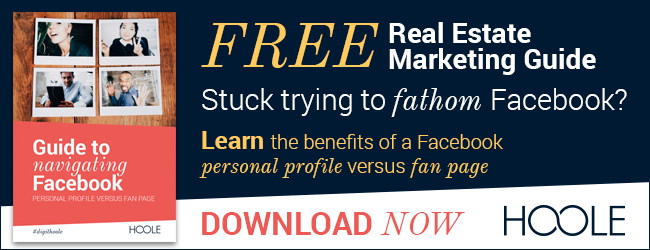What is authenticity and why is it so important to social media marketing? How do you foster an excellent online reputation? Can someone else post updates on your behalf or do you have to be 100% involved with every message?
If you lack the time, inclination or skill to write professional marketing updates, or don’t possess the discipline to send out regular emails and social posts, then it’s absolutely fine to have someone ghostwrite for you.
Some of the biggest brand ambassadors of our time have others write for them – Richard Branson being a case in point and he’s forged the most versatile and successful brand, Virgin, in the world.
Having professional help with your marketing activities ensures you stay relevant and relatable on social media and easily found in Google search. Engaging a communications expert is a smart move that ensures your time remains focused on dollar productive activities.
Some real estate agents, however, are confusing the notion that posting their own daily updates and sharing the truth, the whole truth, and nothing but the truth about who they are and what they do (every waking hour of their day) is what social media marketing is all about.
Trust me, unless you’re the star of a reality TV channel (which could be the case if you are Million Dollar Bogan’s Daniel Hayes) this perceived version of authenticity sounds exhausting to me.
Hence, today I clarify what being ‘authentic’ actually means, and discuss approaches you should take (and avoid) with your social media messaging.
Follow these simple tips, and you’ll easily foster a positive online reputation, whether that’s with the help of a team of communication experts or by yourself.
Also, if you’re wondering, yes this is actually me writing!
What is social media authenticity?
Authenticity is merely the act of being real, genuine, and original. Being your true blue, bona fide self. It’s the critical driver in building your ‘know, like and trust factor’ in the mind of homeowners.
Impression management is another term that helps describe how you can influence others and is the act of controlling information shared through social interactions, be that in real life conversations or online discussions.
Ask the question
“Mirror, mirror on the wall, who’s the most authentic of them all?”
Mirror replies
“User-generated content is the most authentic, master”.
Word of mouth referrals and unsolicited recommendations are what constitutes authenticity. The most important people are your past clients, for they have enormous power to foster a positive reputation for you. However, you won’t always be privy to their posts.

Your name may be shared in a private group or in a comment attached to a post asking friends and relatives for recommendations on local real estate agents.
These kind of unprompted promotions are impossible to replicate. They come from hard work and persistence – doing your very best to provide a first class service to your clients at all times.
What you can do however is ask for recommendations and referrals to be shared on Rate My Agent, Google, Facebook and LinkedIn. You can also record testimonials as video snippets and upload them to your website or social media accounts.
Is curated content authentic?
Yes of course it is.
By this, I am talking about posts that have been pre-planned and scheduled to be sent out to your social media feeds ahead of time, such as the design of your Instagram page layout.
Look at it this way; you take care of your personal appearance, right? Moreover, real estate agents are well-known for being well-turned-out, smartly dressed and presentable. So there’s certainly nothing wrong in making sure you look your very best online too. You’re simply ensuring that you make a good first impression when potential clients check you out.
Can a page act as a person?
Facebook has recently allowed Pages to post into Groups. Many social media marketers are up in arms about this and believe that this goes against the fact that Groups are designed for people to people interactions, not brand (page) to people interactions.
However, I think this works perfectly well for real estate agents because more often than not your page carries your picture, not a company logo, and is acting like you. So when the brand (or page) is a person I believe it’s absolutely fine.
Being honest and transparent
Generally speaking, I believe real estate agents overuse two words in their online profiles, namely the terms ‘honesty and integrity’. How you conduct yourself on social media is far more important than what you say in your written bio.
Share both the good times and the bad
Consider these two questions;
1 – Have you ever exaggerated your sales results, the number of offers received, or visitors through your weekend home opens?
2 – Do you pretend that the market is better than it really is? Alternatively, do you provide an honest account of a recent sale, admit that you faced a tough situation and show how you dealt with unexpected challenges face-on?
If you’ve been following my blog for a while, you may remember real estate up and comer Eddie Piddington who shared his story about a tough and drawn-out home sale negotiation in his REB Award submission.
Eddies honest account of his dealings with a particularly tricky home buyer really was the best policy. His honest recount about his best (and worst) sale won him favour with the REB Award judges and will work wonders in listing presentations too.
In my book, that’s what being honest and authentic is all about.
Avoid the ‘look at moi” Kath and Kim approach
Avoid drumming home ‘what a fantastic salesperson you are’ all the time. It’s better to share the good, the bad and the ugly sides of being a real estate agent. Give it a go, wear your heart on your sleeve. Share your feelings about a sale or situation, and see the response.
Abstain from pushing the hard sell
I appreciate that this is probably the hardest thing to ask of a salesperson, but please ‘sell yourself less’ online.
Avoid the continual stream of self-promotion. I’m sure you know an agent like this – they’re the ones that thank their wife, husband, mum, second cousin, local barman for being instrumental in helping them get to this point in their real estate career. It’s not the Oscars.
Find ways to add value, become a do-gooder. To coin a phrase from the Red Hot Chilli Pepper’s, the aim with social media marketing (note I said marketing, not sales) is to “give it away, give it away, give it away now”.
Remember, several years or decades may have passed since the homeowner last sold a property, so bring them up to speed on the process, educate them on what to expect, what changes you see in the current market (that the media hype is just hype). They’ll be thankful for your honesty and become naturally wedded to you.

Try practising some Mudita
This Buddhist term roughly translates as sympathetic or unselfish joy.
Let’s discuss the photo of ‘that sold sticker’ being placed on a signboard.
Firstly, make sure you congratulate your clients for securing a beautiful home, ending their lengthy home search, or perhaps finding a fantastic investment property.
Refrain from telling the world (and the buyer) that you achieved the suburb price record because you’re basically telling their friends and relatives that they just paid silly money for their property. That may be the case, but for your educated readers, it’s a little cringe-worthy.
Subtlety is seemingly a lost art on some people’s social media profiles. So carefully consider what you write and make sure people following you are tuning in, not turning off.
Hold back on the motivational quotes
Motivational quotes make perfect sense to me on the social media accounts of real estate coaches, because it’s their job to give you as agents an emotional lift, and snap you into action. But these quotes have very little relevance to the average home seller (unless they also work in sales or are a fitness fanatic).
Remember why you’re on social media in the first place
You want people to get to know you, in a good way. Become familiar with who you are, what you do, benefit from your advice, tips, insights and knowledge. Then, ultimately (when they are ready, which may be weeks, month’s or years) reach out to you for help, be that listing, selling or renting a property with you.
It truly is that simple.
It’s about staying present (in the social feed), likeable, personable and presentable. So, keep your private life, just that, private. No one wants to see you in your budgie smugglers, read drunken ramblings or offensive jokes. Keep your political views to yourself so that you don’t ostracise anyone in your local community. And no, people don’t want to see pictures of what you had for dinner. Yes, I know there’s a hashtag #foodporn, but there’s also a thing called #oversharing.
Share your lighter side
If there’s one thing I know about real estate people, it’s that many of you have an excellent sense of humour – perhaps that’s a pre-requisite when dealing with the general public! So, don’t be afraid to let your humour shine through from time to time. Putting a smile on someone’s face is a great way to win their heart and their property listing!
Also, remember, it’s not called social media selling, the keyword (which I encourage you to remember) is that you are marketing yourself. Moreover, to do this well you need to be shaping a clear and consistent message. One that opens up a dialogue between you and your followers and forges a long-term relationship, months ahead of when they call you.
Then, when they are ready to pick up the phone and call in an agent, if you’ve marketed yourself well, it will be you (and hopefully only you) that they ask in to appraise their property.


Join the Conversation - add your thoughts